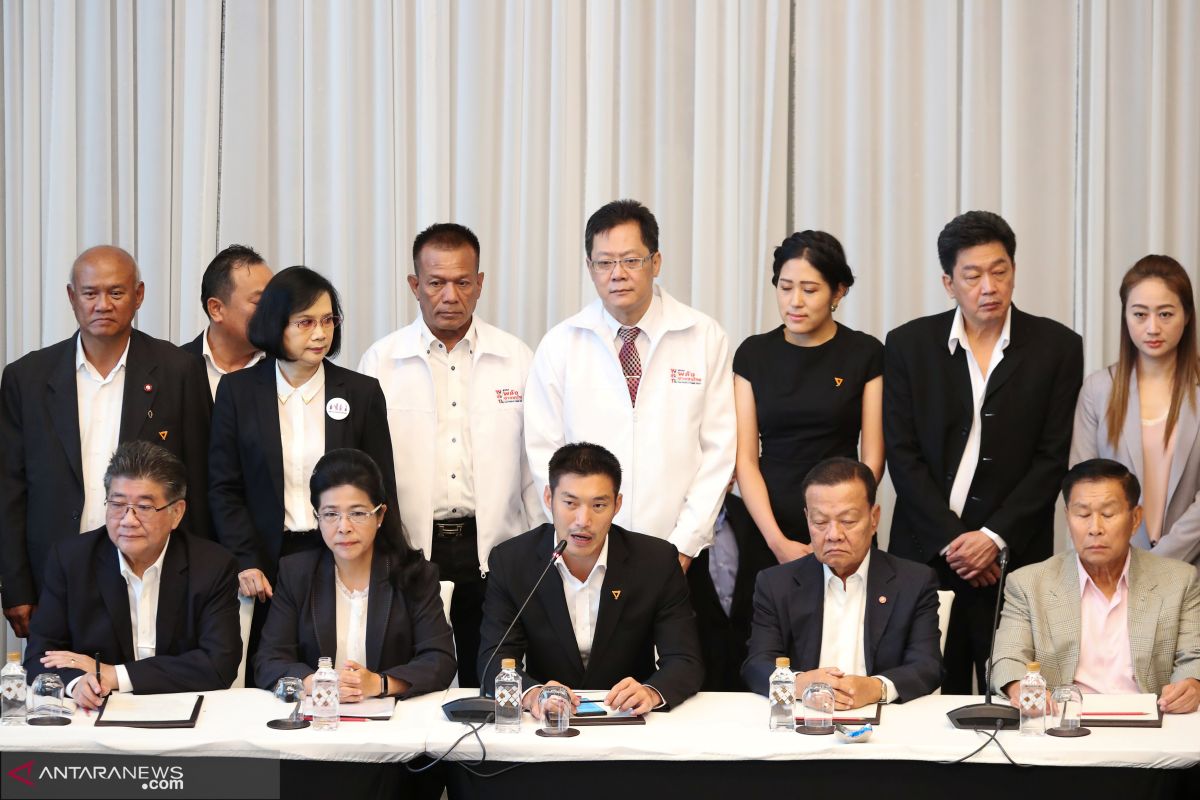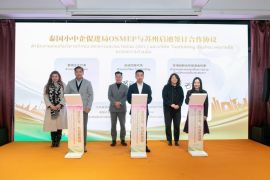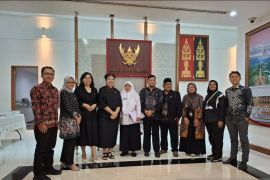Undeniably, the country's fate lies in the hands of these youngsters. Time has stood witness to the fact that members of the young generation have been the harbingers of change, constantly driving a movement, right from the Umbrella Movement in Hong Kong to the Arab Spring throughout the Middle East.
This phenomenon has also been revealed in Thailand that has just convened its general elections on March 24, 2019, the democratic process that has been absent over nearly eight years.
Not one to be withheld by “ancient” norms, youngsters constantly seek change and freedom. Despite lady luck not always smiling down upon them, they not only manage to emerge unscathed but also taste sweet victory.
The recently established Future Forward Party (FFP) – which was officially registered by the Election Commission on September 2018 -- comes in the last category.
With progressive policies to end military rule, effective social media campaign strategies, a pool of young staff members, and a well-liked billionaire leader, the party is acclaimed by many as the clear winner in the recently concluded Thai polls, in spite of the official final results yet to be declared on May 9.
Termed by the media as a young team of hipsters and activists, the FFP rose up in the polls after securing support of the millennials and aligned to become the third-largest party by vote count in the recent Thai polls, after the military-linked party Palang Pracharath, and the main opposition party of Pheu Thai linked to ousted prime minister Thaksin Shinawatra.
An overwhelming result that gives their leader, Thanathorn Juangroongruangkit, an opportunity to become the prime minister in spite of the current baffling vote-counting.
Thanathorn was quoted by Bangkok Post as saying that Pheu Thai offered to nominate him for the prime minister's post if that party's candidates for the job were unable to get into parliament though he refused the offer, as proposing its leader as a prime minister is not one of the Future Forward's conditions for it to join a coalition to form a government.
The party's top and leading agenda is to return the nation to democratic rule, with an assurance of multi-sectoral reforms. The party’s slogan “The Future we aspire to is the future where the ultimate power truly belongs to the people,” speaks volumes of its stance.
Nonetheless, FFP’s success should not come as a surprise, with the party spurred by a wide-ranging crew of youngsters in their 20s rooted in social activism. They are well-tuned with the aspirations of the Thai youth. Most importantly, they do not have the historical burdens of past mistakes.
Thai youth -- mostly first-time voters -- long to make their voices heard. They headed to the polls seeking changes. These youngsters have been bogged down by endless divisions between parties aligned with the military and the main opposition.
The youth are keen to appoint a leader, who speaks the same tone, is on the same page as them, and echoes their global views. A gesture that the same old-faces of politicians awkwardly embraced.
However, this is far from true for the 40-year-old Thanathorn, heir to an auto parts fortune, with four children well-loved by his young supporters akin to a celebrity. Donning a T-shirt, active on social media, a pro at capturing selfies, and using teen slang words in his campaign in universities across Thailand, he is also known to have showed the “finger heart” gesture popularized by Korean pop stars for greeting his supporters, termed “Futuristas.”
He also reportedly exchanged hashtags with his young supporters on social media. For instance, when the hashtag “#FahLovesDaddy” went viral on social media, the media reported him as having responded with another hashtag, “#DaddyAsksFah” to call on his supporters to vote.
Daddy and Fah refer to soap opera characters. Daddy is a successful businessman, while Fah is the female protagonist in love with him.
The FFP, in the quest for proportional party list seats, is partly facilitated by the dissolution of the Shinawatra-linked Thai Raksa Chart party for running a princess as candidate for premier, but with 18- to 25-year-olds constituting some 15 to 16 percent of the nearly 52 million eligible Thai voters, the youth ballot could prove decisive.
As a novice in Thai politics, the FFP has made all the right moves to draw young voters. Without baggage, past misdemeanor, and links with conflicting parties, it has called on the millennials for discussing the agendas instead of laying focus on partisanship and figures. One of its widely-spoken agendas is rewriting the Constitution.
The country's Constitution, passed in 2017 as the 20th since absolute monarchy came to an end in 1932, was termed by the media as the regime's insurance policy. It allows a third of the legislature, or 250 senators of the upper house, to be appointed by the military. The new government will also have to abide by the law to adhere to the "20-year national strategy."
Thanathorn leads his campaign teams that continue to engage young generations across Thai evaluating and finely monitoring the party’s progressive agendas, right from restraining the military’s role and reducing the arms budget to embracing contentious issues, including LGBT and military conscription, via several social media platforms. To this end, he, along with a few of his party members, had faced criminal charges for being critical about the regime online.
Responding to the public's doubts over his motive behind entering Thai politics, he claimed to have put his huge wealth in a blind trust and resign from all positions in his family companies to prevent any conflict of interest. During several interviews, he clarified his stand on not seeking office to further his own businesses similar to several businessmen-turned politicians. He drew attention of his supporters to the perks of being young, to be an idealist.
Branded as spoiled, lethargic, and bellyacher by their seniors -- who might also been labeled the same by their elders years before -- the millennials are, in fact, the true game-changers.
Thailand is not a single case, as in less than three weeks, the neighboring country in Southeast Asia, Indonesia, will also organize elections, in which two pairs of presidential and vice presidential candidates will go head-to-head to grab the youth's confidence, the votes of first-time voters.
The manner in which the FFP has acknowledged the youth’s tenacity is a lesson for all to learn. It is a gentle reminder to the fact that the youth is a force to be reckoned with.
It is because it was their sweat and efforts that uphold the nation and their souls that guard mankind. It has been theirs and theirs only for centuries across the globe.
An ode to all youngsters and their battles to preserve the idealism within.
Editor: Rahmad Nasution
Copyright © ANTARA 2019











